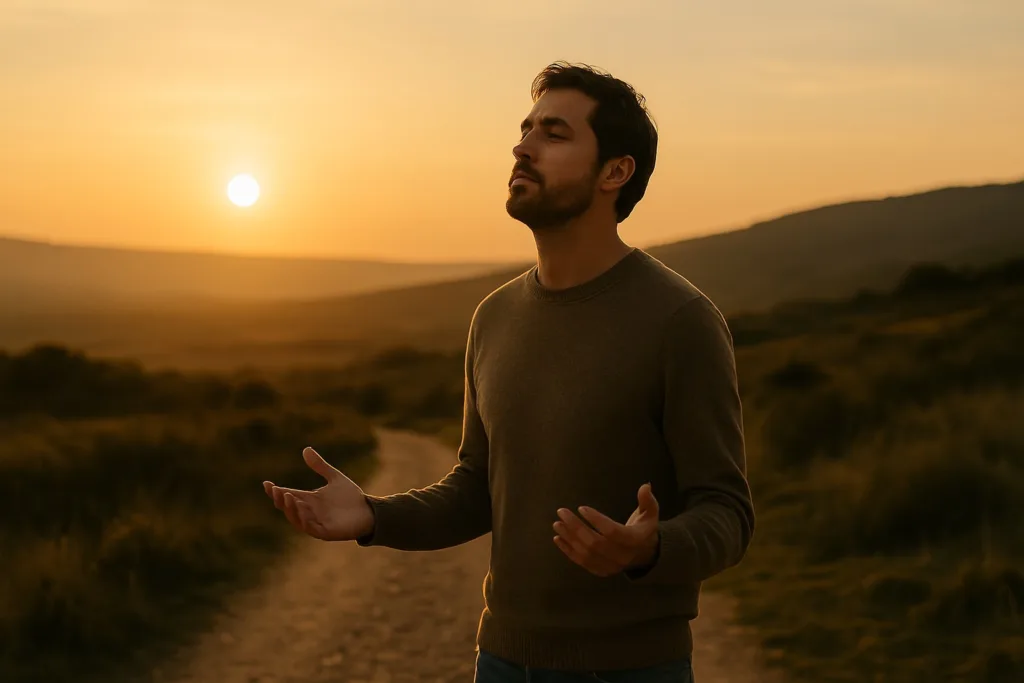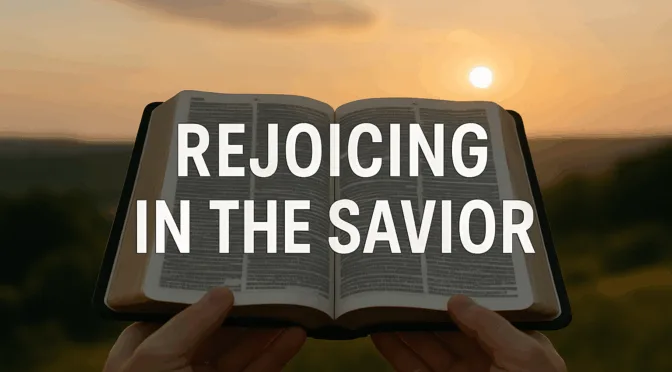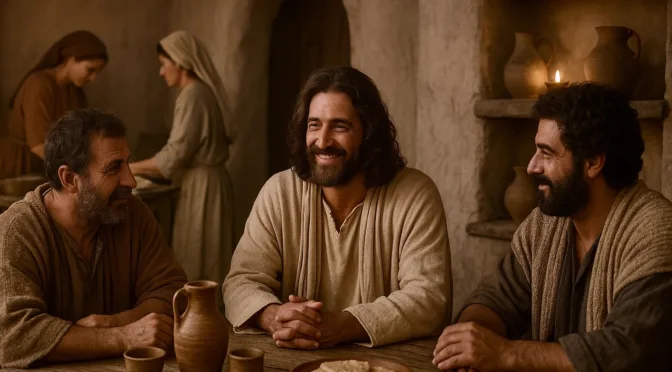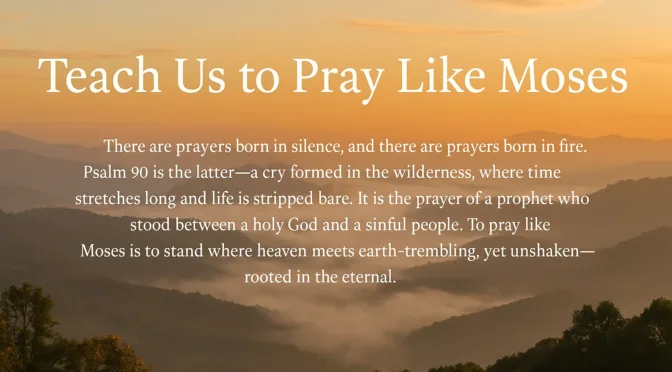Rejoicing in the One Who Saves
“For today in the city of David there has been born for you a Savior, who is Christ the Lord.”
— Luke 2:11, NASB
We rejoice because we have a Savior—not a concept, not a symbol, but a Person: Yeshua, the Son of the Living God. He did not come to condemn the world, but to save it (John 3:17). He entered into time, took on flesh, and came for you. Let that truth sink in. Before you ever sought Him, He came seeking and saving the lost (Luke 19:10). Indeed, we find true joy when rejoicing in the Savior.
Throughout Scripture, this mission of salvation is declared, echoed, and fulfilled. From the angel’s announcement to Joseph (“He will save His people from their sins,” Matthew 1:21), to the bold declarations of Paul (“Christ Jesus came into the world to save sinners,” 1 Timothy 1:15), the heart of heaven beats with one glorious theme: rescue. This is not temporary relief. This is eternal transformation, a transformation that evokes rejoicing in the Savior’s redemption.
“But rejoice that your names are recorded in heaven.”
— Luke 10:20, NASB
The reason for our rejoicing is not in signs, wonders, or works—but in the assurance of our salvation. Heaven knows your name. The Son has brought you near. You were once far off, an enemy of God by sin and nature. But now, through Yeshua’s blood, you are reconciled (Romans 5:10). When we are reconciled, we embrace rejoicing in the Savior, who holds our future secure in the Father’s house, where many rooms await (John 14:2).
You don’t merely survive this life—you belong to another Kingdom. “Our citizenship is in heaven,” Paul wrote (Philippians 3:20). You are not waiting for escape—you are waiting for the King. And when He appears, He brings reward (Matthew 6:1), inheritance (1 Peter 1:4), and the restoration of all things (Romans 11:26).
“He is also able to save forever those who come to God through Him.”
— Hebrews 7:25, NASB
The salvation Yeshua offers is not a one-time transaction—it is eternal, active, and ongoing. He not only saved you—He keeps you. He not only forgave your sin—He intercedes for you now (Hebrews 7:25). He is the Good Shepherd who carries you when you are weak. He is the Head of the Body (Ephesians 5:23), the One in whom all the promises of God find their yes (2 Corinthians 1:20). His grace sustains, His mercy restores, and His Spirit empowers you daily.

Even now, as you read these words, He is drawing you deeper—into trust, into holiness, into love. Because this is not only about being saved from something—it is about being saved for something: for communion, for glory, for everlasting joy in Him.
“Grow in the grace and knowledge of our Lord and Savior Jesus Christ.”
— 2 Peter 3:18, NASB
So how do we respond? By growing in grace. By letting go of hollow religion and pressing into the Person of Christ. He is not a distant figure from ancient texts—He is your Savior today. And He invites you to grow in Him, to walk by the Spirit, to rejoice in the hope of glory, rejoicing continually in the Savior’s presence and his promise never to leave or forsake us.
This world will fade, but the name of Jesus will never fade. Nations rise and fall, but “the Savior of the world” (1 John 4:14) reigns forever. You are not alone. You are not forgotten. You are redeemed.
O Savior King, the skies declare
The mercy seated in Your stare.
You lift the poor, You heal the shame,
And heaven knows Your holy Name.
My joy is not in what I do,
But in the One who carries through.
Prayer
Father, thank You for sending Yeshua—my Savior, my Lord, my King. I rejoice that my name is written in heaven. Let me never grow numb to the miracle of Your mercy. Grow me in grace, anchor me in truth, and set my feet firm in the hope of salvation. Keep me close. Teach me to rejoice not just in blessings, but in Your presence alone. Yeshua be glorified in me today. Amen.
⸻




